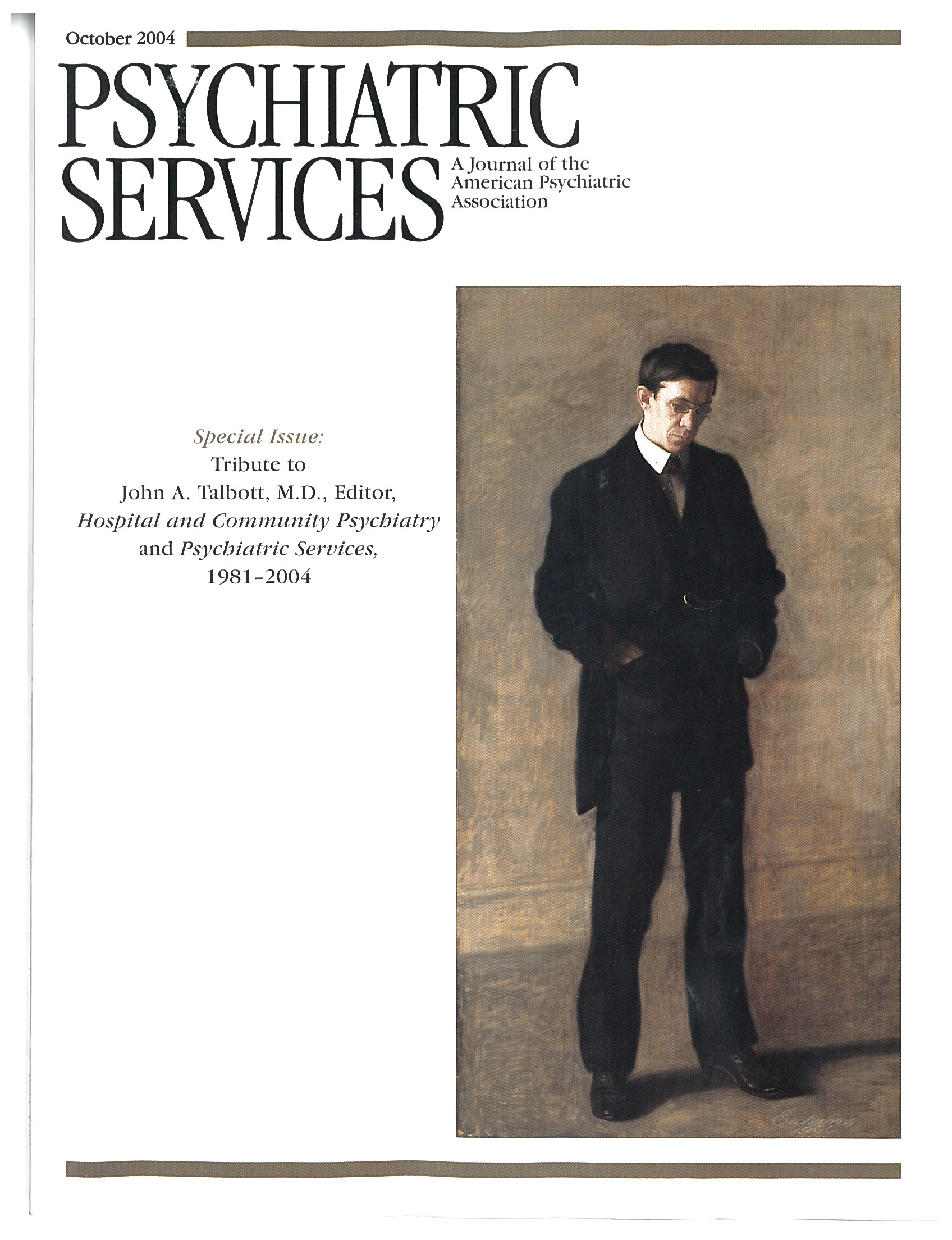To the Editor: There are many reasons to celebrate and honor John Talbott. I will mention only a few. His contributions to psychiatry and public health mark him as one of a small number in our field who have understood our mission as basically social—the attempt to alleviate suffering, especially for those who are unable to make their needs heard in the public arena.As a teacher, researcher, editor, leader, and advocate, John has been guided by a profound social conscience to use his gifts in the service of those who are less fortunate.
This sense of moral commitment that has guided John's professional career has also guided aspects of his personal life.John's devotion to good food, good wine, French culture, good literature, jogging, friendship—to mention just a few of his deep interests—are pursued with the same diligence, intelligence, and striving for excellence as are his more obvious contributions to the well-being of society. Being around John is pretty much a guarantee of a good time.His laugh and warmth are infectious, and his intellect sparkles.
John is one of those rare few of us who is leaving an enduring legacy. Psychiatric Services, which thrived during John's tenure, has become a guide for investigation and the generation of new ideas in an arena that is often neglected by many of us.
While John is giving up a title, it is unlikely that we will miss him, because his large presence, ebullience, wit, and endless gush of ideas will continue to be a part of our personal and professional lives.
Dr. Cooper is the Stephen P. Tobin and Dr. Arnold M. Cooper professor emeritus in consultation-liaison psychiatry at Weill Medical College of Cornell University in New York City.



